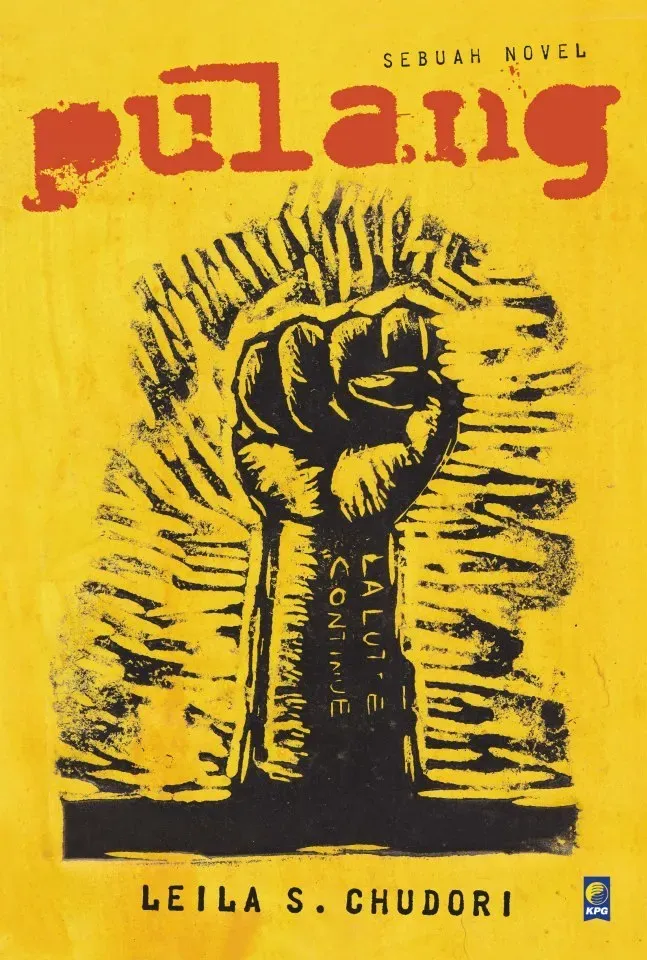Pulang

Author: Leila S. Chudori
Category: Fiction, literature
Language: Indonesian
Publication Year: 2012
Pages: 472
Description:
*Pulang* by Leila S. Chudori is an intricate novel that weaves together themes of exile, political turmoil, family, and identity, set against the backdrop of one of the most tumultuous periods in Indonesian history. The novel spans decades, tracing the lives of Indonesians living in exile in Paris after the 1965 anti-communist purge, and how the political events of their homeland continue to shape their lives.
The novel follows Dimas Suryo, a journalist who is forced into exile after the 1965 coup that led to the rise of Suharto's regime and the brutal suppression of suspected communists. Alongside his fellow exiles, Dimas builds a new life in Paris, but the shadow of Indonesia never leaves him. This sense of dislocation and longing for home permeates the novel, as Dimas struggles to reconcile his love for his country with the impossibility of returning.
Chudori’s portrayal of exile is deeply personal and poignant. Dimas is not just running from political persecution—he is haunted by memories, by the life he left behind, and by the ever-present question of whether he made the right choices. His story is one of survival, but also of sacrifice. He, along with other exiles, creates a small community in Paris, bonded by shared experiences of loss, but they never stop being defined by the homeland they cannot return to.
At the heart of *Pulang* is also the next generation, especially Lintang Utara, Dimas' daughter. Born in Paris, Lintang grows up with a deep sense of her father’s history, yet disconnected from her Indonesian roots. Her journey to understand where she comes from forms a key emotional thread in the novel. Lintang’s quest for identity—torn between her Parisian upbringing and her Indonesian heritage—is both a personal and political one. Through her, Chudori deftly explores how the children of exiles grapple with a sense of belonging and the weight of their parents' pasts.
The novel alternates between Dimas’s life in exile and Lintang’s present-day quest to uncover the truth of her father’s history. This dual narrative gives the reader a layered perspective on how political upheaval affects not just individuals, but entire families across generations. Lintang’s investigation into her father’s past becomes a lens through which Chudori examines the larger historical forces at play in Indonesia.
One of the novel's most compelling aspects is its exploration of Indonesia's political history. Chudori vividly depicts the aftermath of the 1965 coup, which led to widespread violence and the persecution of anyone suspected of communist sympathies. Through Dimas’s memories, we see the fear and paranoia that gripped Indonesia, as well as the personal cost of political dissent. For Dimas and his fellow exiles, this history is not just something in the past—it is a living, breathing part of their everyday reality, influencing their relationships, their choices, and their identities.
The title *Pulang*, meaning "home" or "return" in Indonesian, reflects the central theme of the novel: the desire to return, both physically and emotionally, to a place of belonging. For Dimas, "home" is a complicated notion. It’s the place he can never go back to, but also the place that never leaves him. For Lintang, "home" is something she is still searching for—caught between the Parisian streets she knows and the Indonesian heritage that feels distant and unfamiliar.
Chudori’s writing is rich with emotion, and her characters are deeply human, flawed, and sympathetic. Dimas, in particular, is a complex protagonist—at times stoic and resigned, at other times haunted by regret. His relationship with Lintang is one of quiet love and unspoken pain, and as the novel unfolds, Chudori masterfully reveals the layers of their bond. Lintang, in her own right, is a compelling character, driven by a need to understand her father’s choices and her own place in the world.
What sets *Pulang* apart from other historical novels is Chudori’s ability to interweave the personal and the political so seamlessly. The political backdrop of Indonesia in the 1960s and 1970s is not just a setting—it’s an integral part of the characters’ lives and motivations. Chudori gives voice to the thousands of Indonesians who were forced into exile during this period, and she does so with empathy and nuance.
However, some readers may find the novel’s pacing a bit slow at times, especially when it delves into long passages of historical context. But this is a minor quibble in a novel that is otherwise beautifully constructed and deeply moving. The novel’s emotional weight and historical depth make it a rewarding read for those interested in the complexities of identity, memory, and home.
In *Pulang*, Chudori offers more than just a history lesson—she tells a deeply human story of loss, resilience, and the search for belonging. The novel speaks to the experience of exile in a way that feels both specific to Indonesia and universal to anyone who has ever felt disconnected from their roots. For readers interested in Indonesian history, or simply in beautifully told stories of family and identity, *Pulang* is a powerful and unforgettable novel.
Personal Notes:
Another must-read book from Leila S. Chudori, especially for Indonesian young people to understand what was truly happened in the past.
Back to Home